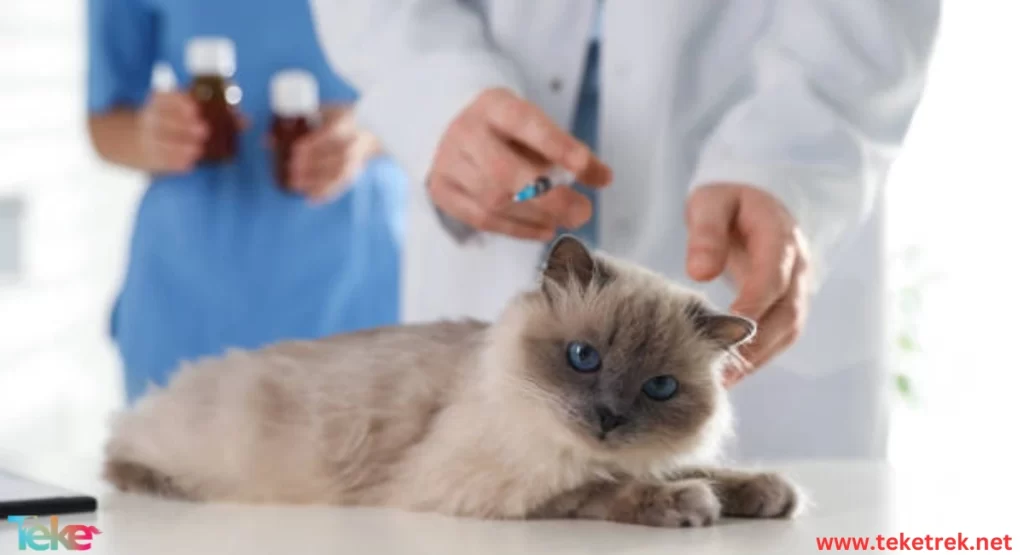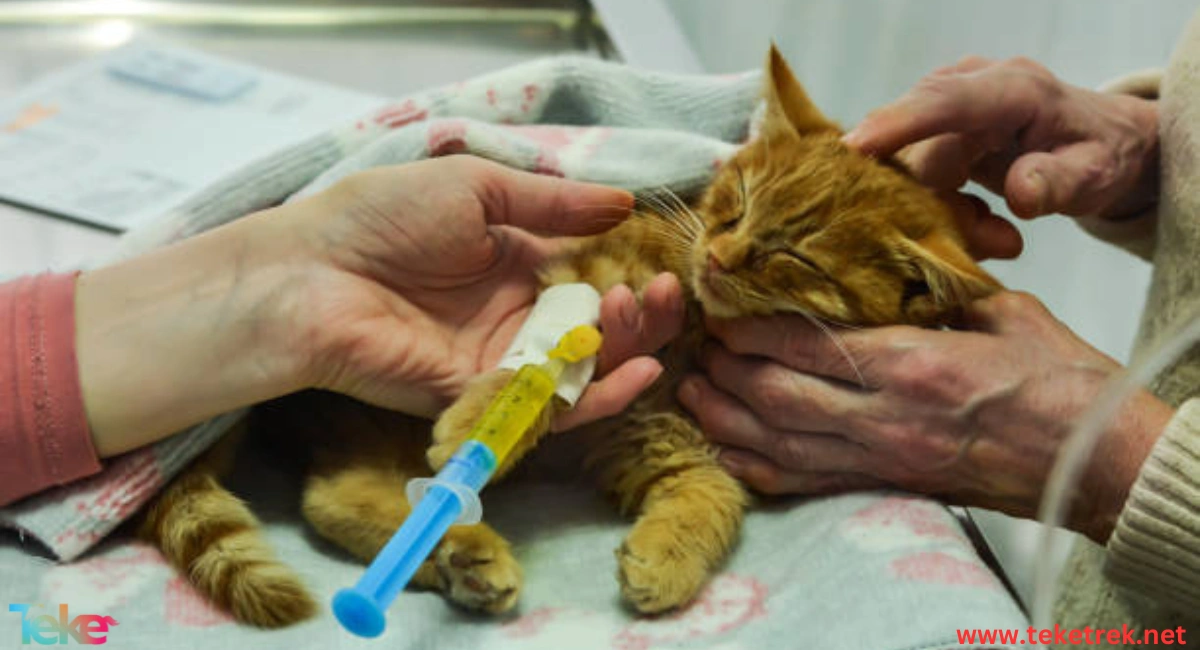Viral diseases are a significant challenge for cat lovers, as maintaining your cat’s health and safety is essential. Awareness of these diseases is crucial since viruses play a major role in many health problems cats may face. In this article from teketrek, we’ll discuss the most common viral diseases affecting cats, their symptoms, and available treatments, ensuring your feline companion remains in good health.
Common Viral Diseases in Cats
Seeing our cats suffer from illnesses is one of the hardest experiences for pet lovers. However, understanding what your cat is going through and how to help them feel comfortable and happy is vital for providing proper care. Below, we explore some of the most common viral diseases in cats:

Feline Leukemia Virus (FeLV)
Cat Illus Cancer virus (Felv) is one of the most common viral diseases in cats, as it causes serious health and may threaten life. This virus is particularly prevalent in multi-cat environments, as it spreads through close contact with infected cats. Transmission occurs via shared food and water bowls, grooming, or physical interaction.
Common symptoms of FeLV:
- Pale, inflamed, or bleeding gums
- Loss of appetite and weight
- Lethargy and depression
- Fever
- Sudden behavioral changes
- Vomiting and diarrhea
- Poor coat condition
Treatment:
Treatment typically involves supportive care, such as providing proper nutrition and hydration, along with medications to manage symptoms. Regular blood tests help monitor the virus’s progression. In some cases, lifestyle changes, such as stress reduction, are enough to manage the disease depending on its severity.
Feline Immunodeficiency Virus (FIV)
Feline Immunodeficiency Virus (FIV) is another common viral disease in cats, potentially leading to serious health complications. FIV progresses slowly, meaning cats may not show immediate symptoms, making detection more challenging. The virus spreads through saliva and bodily fluids, often resulting from fights with infected cats.
Common symptoms of FIV:
- Frequent sneezing
- Loss of appetite and weight
- Lethargy and depression
- Fever
- Diarrhea
- Poor coat condition, with skin redness or sores
- Swollen lymph nodes or other organs
- Increased susceptibility to infections and illnesses
- Anemia
Treatment:
Treatment usually includes managing symptoms with medications and conducting regular blood tests to track the virus’s progression. In some cases, lifestyle adjustments, such as providing a stress-free environment, minimizing exposure to other cats, and maintaining hygiene by regularly cleaning food and water bowls, can help manage the condition.
Essential Vaccinations for Cats
Vaccinations are a fundamental part of cat care, protecting their health and ensuring a longer lifespan.
Core Vaccinations:
- Feline Combo Vaccine (FVRCP): Administered starting at two months of age, with a booster three weeks later.
- Rabies Vaccine: Given between 3–6 months of age and repeated annually.
- Deworming Vaccination: Protects against intestinal parasites.
- Flea and Tick Vaccination: Shields cats from external parasites.
The Importance of Vaccinating Cats Against Viruses
Vaccinating cats against viruses is crucial for safeguarding their health and well-being. Key benefits include:
- Disease prevention: Vaccines protect cats from severe viruses like FIV and feline calicivirus.
- Boosting immunity: Vaccines strengthen a cat’s immune system, enabling it to resist infections more effectively.
- Reducing disease spread: Widespread vaccination minimizes the risk of transmission among cats and within their environment.
- Lower healthcare costs: Vaccinations reduce the need for costly treatments of serious illnesses.
- Family safety: Certain viruses can be transmitted from cats to humans, so vaccinating pets helps protect your household.

FAQs
How can I tell if my cat is sick?
Monitor for these signs:
- Weight loss
- Changes in eating or drinking habits
- Lethargy
What are the serious illnesses that affect cats?
- Chronic kidney disease
- Respiratory infections
- Cancer
- Viral infections like FIV and FeLV
Awareness of common viral diseases in cats is a key step in safeguarding their health. By understanding how these viruses spread and recognizing their symptoms, cat owners can take necessary preventive and therapeutic measures. Caring for your pets’ health is not just a responsibility; it’s also a testament to the love and care we show our feline companions.





